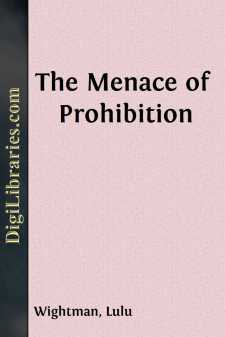Categories
- Antiques & Collectibles 13
- Architecture 36
- Art 48
- Bibles 22
- Biography & Autobiography 815
- Body, Mind & Spirit 144
- Business & Economics 28
- Children's Books 18
- Children's Fiction 14
- Computers 4
- Cooking 94
- Crafts & Hobbies 4
- Drama 346
- Education 58
- Family & Relationships 59
- Fiction 11834
- Games 19
- Gardening 17
- Health & Fitness 34
- History 1378
- House & Home 1
- Humor 147
- Juvenile Fiction 1873
- Juvenile Nonfiction 202
- Language Arts & Disciplines 89
- Law 16
- Literary Collections 686
- Literary Criticism 179
- Mathematics 13
- Medical 41
- Music 40
- Nature 179
- Non-Classifiable 1768
- Performing Arts 7
- Periodicals 1453
- Philosophy 65
- Photography 2
- Poetry 896
- Political Science 203
- Psychology 44
- Reference 154
- Religion 515
- Science 126
- Self-Help 85
- Social Science 83
- Sports & Recreation 34
- Study Aids 3
- Technology & Engineering 59
- Transportation 23
- Travel 463
- True Crime 29
Our website is made possible by displaying online advertisements to our visitors.
Please consider supporting us by disabling your ad blocker.
The Menace of Prohibition
by: Lulu Wightman
Description:
Excerpt
John Stuart Mill defines Prohibition in this language:
“Prohibition: A theory of ‘social rights’ which is nothing short of this—that it is the absolute right of every individual that every other individual shall act in every respect exactly as he ought; that whosoever fails thereof in the smallest particular violates my social rights and entitles me to demand from the legislature the removal of the grievance. So monstrous a principle is far more dangerous than any single interference with liberty;—there is no violation of liberty which it would not justify.”
And in the light of the last sentence, “so monstrous a principle is far more dangerous than any single interference with liberty;—there is no violation of liberty which it would not justify,” the writer would especially examine this modern crusaders movement for Prohibition. Many other writers have viewed the question from sociological, economic, and religious standpoints; but the principle of the thing,—that in which it is based—a “monstrous” principle, which, as Mill says, “is far more dangerous than any single interference with liberty,” deserves more serious consideration than any other phase of the question: a principle, in fact, of intolerant coercion as against the great principle of individual liberty so thoroughly established as the inherent right of the citizen at the very inception of this government in the Western world.
To do justice to this particular phase of the question of Prohibition—a principle so dangerous and “monstrous” that there is “no violation of liberty which it would not justify”—it is necessary to be courageous, honest, unafraid, and not “soaked to the pulp in the pseudo-puritanical, moral antiseptic bath of conventional prejudices.” Here in America we have had enough of base misrepresentation, rotten hypocrisy, and sugar-coated sentimentality. What we really need now is honesty of purpose and courage of conviction, let the criticizing mob be of “the upper ten thousand or lower,” it matters not.
A False Principle
What Is the Real Menace of Prohibition?
It is the false principle from which it derives its life and being. “We are the good people,” say the moral reformers: “you are the bad; therefore it is the duty of the good people to seek control of the government and to enact laws that will make you bad people good.” The platform of the Prohibition Party of Ohio states it in a different way, but in essence it is the same thing:
“The Prohibition Party of Ohio ... recognizing Almighty God, revealed in Jesus Christ, and accepting the law of God as the ultimate standard of right ... the referendum in all matters of legislation not distinctively moral.”
In this scheme of government, as it is plainly revealed, “the law of God” as it would be interpreted by the Prohibitionists, would be the supreme standard of all matters distinctively moral, and the initiative and referendum would be relied upon, and allowed in all matters of legislation “not distinctively moral.”
This was exactly what happened in the Dark Ages and early New England: “good people” sought and secured the control of the government, “the law of God” was made “the ultimate standard of right” as interpreted by the “good people” in power, and the “bad people” were put to the torture....


